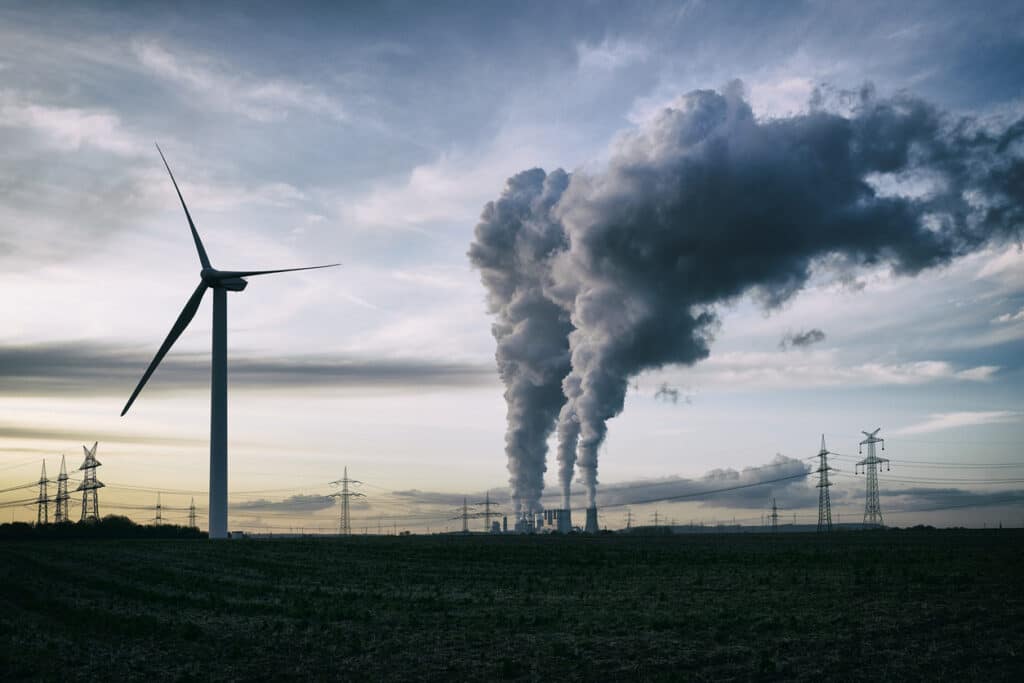On March 6, the U.S. Securities and Exchange Commission (SEC) released a new Climate Risk Disclosure Rule, which substantially waters down emissions reporting requirements for public companies compared to the version of the rule that was initially proposed in March 2022.
The initial proposal included mandatory disclosures for Scope 1 and 2 (direct and purchased) emissions, as well as disclosures for Scope 3 (supply chain) emissions.
The new rule has dropped the disclosure requirements for Scope 3 emissions altogether and diluted the disclosure requirements for Scope 1 and 2 emissions. Now, Scope 1 and 2 disclosures will only be required if company management deems them to be material. All told, the final rule does little to advance disclosure requirements beyond the SEC’s existing 2010 Climate Disclosure Guidance, and could exacerbate the problem of “greenwashing.”
Former Commissioner and Acting Chair of the SEC, Allison Herren Lee, explained:
“Under the new rule companies will not have to disclose the bulk (or in some cases any) of their GHG emissions. Investor focus on this information remains strong and is only growing, so companies will continue to exploit this interest. The new rule, unfortunately, does little to prevent companies from making vague, untested and, most significantly, unsubstantiated, statements about their carbon footprints. It paves the way for greenwashing which, in capital markets, is just shorthand for a very bad outcome: mispriced risk and misallocation of capital.”
In a Press Release issued after the initial March, 2022 draft for the new Climate Risk Disclosure rule, SEC Chair, Gary Gensler said that the proposal was “driven by the needs of investors and issuers.”
“Investors representing literally tens of trillions of dollars support climate-related disclosures because they recognize that climate risks can pose significant financial risks to companies, and investors need reliable information about climate risks to make informed investment decisions,” Gensler said at the time.
The 2022 press release also acknowledged that many companies have already begun to independently attempt to meet investor demand for more information on climate risk disclosures. In fact, as of 2023, 99% of S&P 500 firms (the largest 500 companies trading on major US stock exchanges) issued some kind of ESG-related report and almost half (249/500) obtained assurance over scopes 1, 2, and 3 emissions.
The ultimate omission of the bulk of GHG emissions reporting requirements from the final rule is due in part to fossil fuel and corporate lobbying efforts. The March, 2022 proposed rule attracted over 16,000 public comments, with investors overwhelmingly in favor of greater transparency around climate risks.
“There is now more new investment pouring into alternative energy than fossil fuels. No matter one’s views, I believe most can agree that investor capital should not be steered by misleading or incomplete information. Unfortunately, because it falls down on the most important decision-making metric – GHG emissions – that is what this rule invites,” said Lee.
During her tenure at the Commission, Lee helped propel ESG issues, including climate-risk disclosures, to the forefront of the agency’s agenda. In March 2023, Lee joined whistleblower law firm Kohn, Kohn & Colapinto (KKC) as Of Counsel.
Founding partner of KKC, Stephen M. Kohn stated, “Although the new disclosure rules are not as strict as we’d hoped for, the SEC has demonstrated a commitment to investigating more ESG cases in recent years. It’s important for whistleblowers to know that they can report violations of the climate disclosure rules as well as other ESG violations through the SEC Whistleblower Program.”
